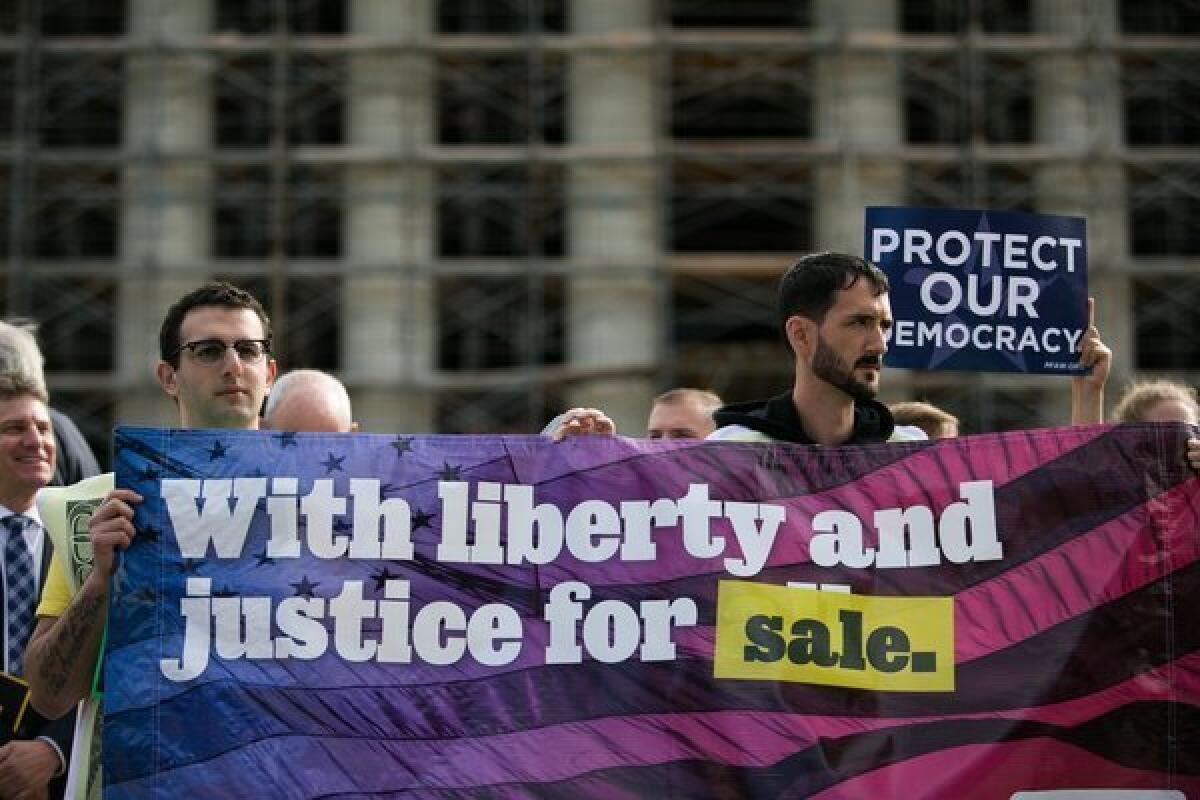It’s not looking good for campaign finance limits at Supreme Court

- Share via
The smart money is saying that at least some Watergate-era campaign finance limits could be struck down by the Supreme Court in a case reminiscent of the 2011 Citizens United disaster.
Oral arguments were heard Tuesday in the new case, McCutcheon vs. Federal Election Commission. As we reported earlier, Shaun McCutcheon, the plaintiff, is a conservative Alabama businessman who thinks the existing limits on how much he can donate to political parties and congressional candidates stifle his free speech.
The law caps any individual’s contribution during a two-year Congressional election cycle to $2,500 per candidate and $30,800 to each political party. Those aren’t in question. What’s before the court are aggregate limits, which allow an individual to make no more than $123,000 total in those contributions. Remove the aggregate limit, and any individual could spend $3.5 million, total.
Said Justice Antonin Scalia during the session, “I don’t think $3.5 million is a heck of a lot of money.” That’s not how Justice Elena Kagan saw it: “You give $3.5 million, you get a very, very special place at the table.”
In the past, the court has upheld these aggregate limits as a bulwark against corruption, which has trumped the constraints on free speech they impose. The torrent of cash that has inundated the electoral system since Citizens United, which removed spending constraints on corporations, has shifted the conversation a bit. Justice Ruth Bader Ginsburg saw the aggregate limits as leveling the playing field between plutocrats and the average voter.
“It has been argued that these limits promote ... democratic participation,” she said. “Instead of concentrating fundraising on the super-affluent, the candidate would then have to try to raise money more broadly.... Then the little people will count some, and you won’t have the super-affluent as the speakers that will control the elections.”
The consensus among court-watchers is that Chief Justice John Roberts holds the swing vote; he seems to be inclined to eliminate the limits on contributions to candidates, while leaving some constraints on contributions to parties. If that happens, it will be a severe blow to the cause of fair elections -- just not as bad as it could have been.
The transcript of the hearing is here. My colleague David Savage’s up-to-the-minute analysis is here, and a rundown by Lyle Denniston of SCOTUSblog is here.
More to Read
Get the L.A. Times Politics newsletter
Deeply reported insights into legislation, politics and policy from Sacramento, Washington and beyond. In your inbox twice per week.
You may occasionally receive promotional content from the Los Angeles Times.











